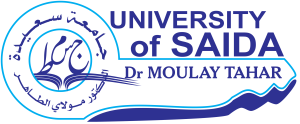ABSTRACT
|
COURSE INFO |
TERM Spring 2024 TIME S 8.00 – 11.00 PM
Dr. Mohamed Hadji mohamed.hadji@univ-saida.dz
mohamedhadji1983@gmail.com
|
Lesson 03 AN ABSTRACT
|
3. An Abstract
3.1. What is an abstract, and how long should it be?
There are four main types of abstracts, all of which summarize the highlights of your research and are judged independently from the accompanying paper, if there is one. Abstracts are sometimes referred to as summaries.
Abstracts are typically found before a full article in a journal, as standalone entries in abstract databases, and in conference programs.
3.2. Types of an abstract
3.2.1. Unstructured abstract: This consists of a single paragraph containing a very brief summary of each main section of your paper, typically between 100–250 words.
3.2.2. Structured abstract: Similar to an unstructured abstract but divided into several short sections.
3.2.3. Extended abstract: This is essentially a mini paper organized in the same way as a full paper (e.g., Introduction, Methods, Discussion), but substantially shorter, usually ranging from two to four pages. Depending on the journal, conference, or competition, the extended abstract may or may not include an abstract. For example, it may begin directly with an introduction.
3.2.4. Conference abstract: Usually a standalone abstract, sometimes up to 500 words, designed to assist conference organizers in deciding whether to invite you to make an oral presentation at their event. It may take any of the forms described above.
3.3. Summary: How can I assess the quality of my Abstract?
To conduct a self-assessment of your Abstract, consider the following questions:
Ø Have I adhered to the journal’s or the administration instructions for authors regarding structure (e.g., structured, unstructured) and style (e.g., active voice vs. passive voice)?
Ø Have I addressed the relevant points, including background/context, research problem/aim, methods, results, and implications/conclusions?
Ø Have I carefully selected keywords to ensure the discoverability of my Abstract?
Ø Is it clear to readers why they are presented with certain information?
Ø Can I reduce redundancy in my Abstract without losing essential content? Would a 25% reduction impact key information?
Ø Have I utilized tenses correctly, such as present simple for established knowledge, present perfect for past-to-present background information, and past simple for my contribution?
By considering these questions, you can evaluate and improve the quality of your Abstract effectively.
